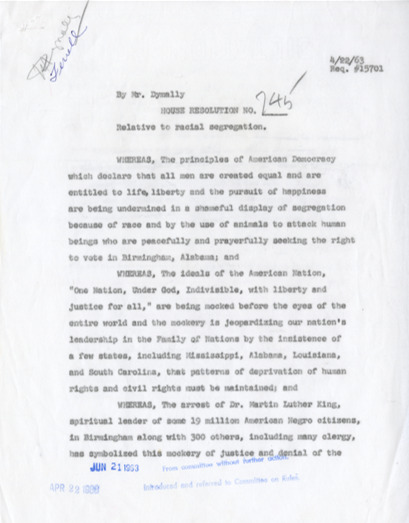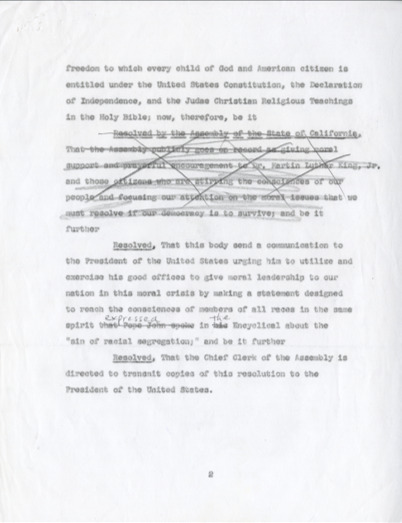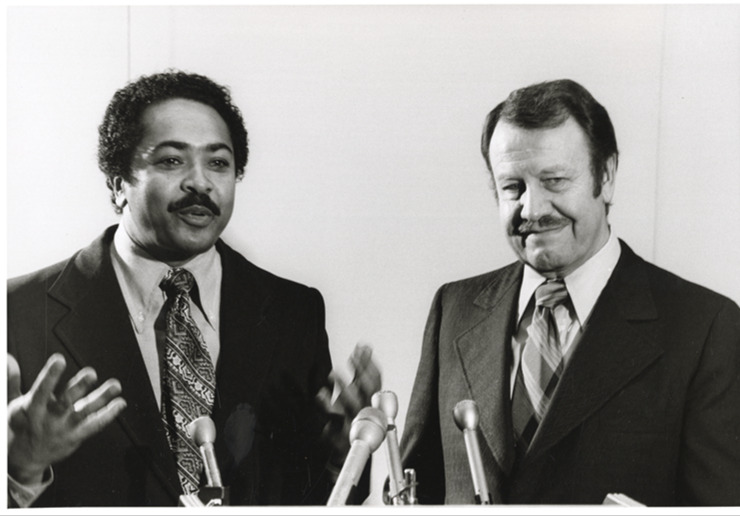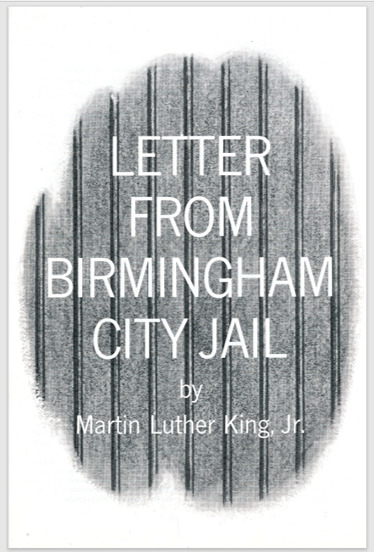In April 1963 the Southern Christian Leadership Conference led by Dr. Martin Luther King, Jr. joined an effort to desegregate public facilities and businesses in Birmingham, Alabama. Non-violent actions including sit-ins, economic boycotts and marches led to thousands of arrests, and press photos of protesters attacked with police dogs and fire hoses. Dr. King’s arrest by the Birmingham Police prompted widespread condemnation. California State Assemblyman Mervyn Dymally introduced House Resolution 245 which reads, in part, “life, liberty and the pursuit of happiness are being undermined in a shameful display of segregation because of race and by the use of animals to attack human beings who are peacefully and prayerfully seeking the right to vote in Birmingham…the arrest of Dr. Martin Luther King…has symbolized this mockery of justice.” Dr. King wrote in his now-famous Letter from Birmingham City Jail that “injustice anywhere is a threat to justice everywhere.” The Birmingham campaign eventually led to promises to end racial segregation in local businesses and inspired President John Kennedy to introduce the Civil Rights Act in Congress. The civil rights movement also gained international attention, Dr. King was awarded the Nobel Peace Prize the following year, and a series of deadly attacks and bombings against the local Black community erupted in Birmingham.



